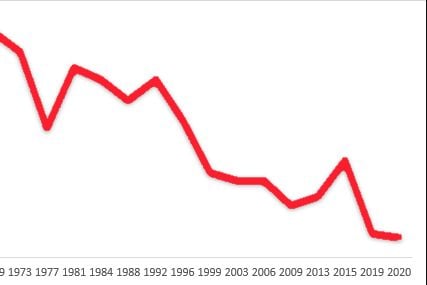HOUSTON – The misfolded and infectious prion protein that is a marker for variant Creutzfeldt-Jakob disease – linked to the consumption of infected cattle meat – has been detected in the urine of patients with the disease by researchers at The University of Texas Health Science Center at Houston (UTHealth) Medical School.
The results of the international study, led by Claudio Soto, Ph.D., professor of neurology at the UTHealth Medical School, is published in the Aug. 7 issue of the New England Journal of Medicine.
Variant Creutzfeldt-Jakob Disease (vCJD) Dementia
Variant Creutzfeldt-Jakob disease in humans and bovine spongiform encephalopathy in animals – also known as Mad Cow disease – are fatal neurodegenerative disorders. There are currently no noninvasive tools available to diagnose the disease and there are no treatments.
Sporadic Creutzfeldt-Jakob disease occurs worldwide at a rate of around 1 new case per million people per year. The variant form is a new disease occurring in people who either ate the beef of cows with bovine spongiform encephalopathy or, in the case of three patients in the United Kingdom, received blood transfusions from asymptomatic infected donors.
Urine Samples
The international team of researchers analyzed urine samples from 68 patients with sporadic Creutzfeldt-Jakob disease, 14 patients with variant Creutzfeldt-Jakob disease, four patients with genetic prion diseases, 50 patients with other neurodegenerative diseases, 50 patients with nondegenerative neurologic diseases and 52 healthy persons.
Soto’s laboratory used a protein misfolding cyclic amplification assay, invented in the lab, which mimics the prion replication process in vitro that occurs in prion disease. The misfolded prion proteins were detected in the urine of 13 of 14 patients with variant Creutzfeldt-Jakob disease. The single patient whose urine was negative had been receiving an experimental treatment of pentosan polysulfate directly into the brain. No misfolded prion proteins were detected in the urine of any the other study subjects, including the patients who had sporadic Creutzfeldt-Jakob disease.
Non-Invasive Test
“What could be less invasive than detecting this disease in urine? The fact that we were able to detect just the variant Creutzfeldt-Jakob disease form in the urine is very important. This could lead to the development of commercial technology for diagnosis as well as to determine the safety of donated blood and urinary products,” said Soto, who is the director of The George and Cynthia Mitchell Center for Research in Alzheimer’s disease and Related Brain Disorders, and founder of Amprion Inc, a biotech company developing the cyclic amplification technology for commercial application.
According to the World Health Organization (WHO), variant Creutzfeldt-Jakob disease affects younger patients, who have a median age of 28 at death, compared to sporadic Creutzfeldt-Jakob disease with a median age of 68. Most patients, after diagnosis of either form, live less than a year before death.
177 of 229 people in the world with Creutzfeldt-Jakob disease were from the United Kingdom. A study published in the British Medical Journal has estimated that approximately 30,000 people in the United Kingdom might be carriers of the variant form of the disease.
vCJD Screening Tool
“This study reports, for the first time, the detection of the abnormal prion protein in the urine from patients with variant Creutzfeldt-Jakob disease using the protein misfolding amplification technique pioneered by Dr. Claudio Soto,” said co-author James W. Ironside, FMedSci, FRSE, professor of clinical neuropathology at the National CJD Research and Surveillance Unit at the University of Edinburgh. “This has great potential to allow the development of a highly sensitive and specific non-invasive test that can be used for the diagnosis of variant Creutzfeldt-Jakob disease, and potentially as a screening tool for variant Creutzfeldt-Jakob disease infection in asymptomatic individuals, which is a topic of current interest in the United Kingdom.”
More Information:
Research Study
Prions in the Urine of Patients with Variant Creutzfeldt–Jakob Disease
- First author is Fabio Moda, Ph.D., who was a post-doctoral fellow in Soto’s lab at the UTHealth Medical School and is now with the Istituto Neurologico Carlo Besta in Milan.
- Co-authors include Luis Concha-Marambio and Kyung-Won Park, Ph.D., from the UTHealth Medical School; and Fabrizio Tagliavini, M.D.; Marcella Catania, Ph.D.; Emanuela Maderna and Silvia Suardi from Istituto Neurologico Carlo Besta.
- Pierluigi Gambetti, M.D., and Silvio Notari, Ph.D. are co-authors from the National Prion Disease Pathology Surveillance Center at Case Western Reserve University. Co-author Richard Knight, M.D., is with the National CJD Research and Surveillance Unit at the University of Edinburgh. Stephanie Haik, M.D., Ph.D., and Jean-Philippe Brandel, M.D., are co-authors from the Assistance Publique-Hopitaux de Paris.
The research was supported by grants from the National Institutes of Health (P01AI077774, R42NS079060, R01NS049173 and R01NS078745 to Soto); PrioNet Canada and Merck Serono (to Soto); the Italian Ministry of Health, Associazione Italniana Encfalopatie da Prioni and Minesterio dell’Universita e della Ricerca (to Tagliavini); the Charles S. Britton Fund (to Gambetti) and the U.K Department of Health and Scottish Government (to Ironside and Knight).
SOURCE:
The University of Texas Health Science Center at Houston











